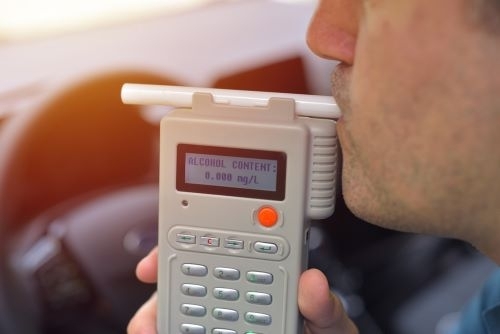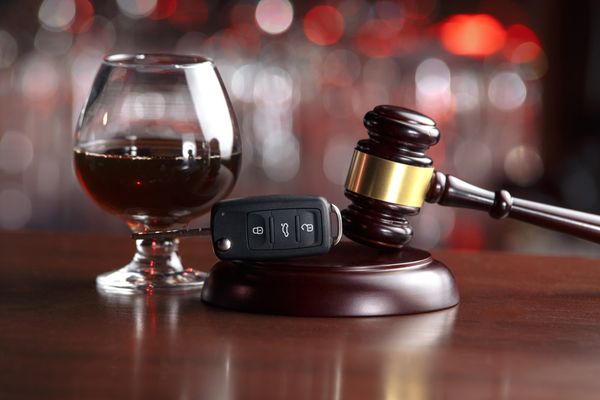Many Indiana DUI defendants become convinced that just because they’ve been charged with a DUI, a conviction is certain. At some point, the police or prosecution may claim that they have the evidence needed to prove their guilt. But neither of these is necessarily true.
Being charged with a crime does not mean you’ll be convicted of it. And even if the district attorney says they can prove your guilt, they might not be able to. You have the right to challenge the evidence against you, and an Indianapolis DUI lawyer can help.
Retaining an Indiana DUI Lawyer Early is Critical
Before worrying about what the prosecutor can prove against you, hire an experienced Indiana DUI attorney. This should be done as soon as possible after an arrest or formal criminal charges are filed.
Your attorney can quickly get ahold of the state’s evidence and determine how strong it is. If the evidence is weak, your lawyer will begin looking for ways to punch holes in the case. It may even be possible to have the case dismissed or plead to much less severe charges.
The decision to retain counsel early will also give you time to build a strong defense. This means obtaining evidence needed to create reasonable doubt in the jury. If the government is unable to prove its case beyond a reasonable doubt, a conviction cannot stand.
Challenging the BAC Chemical Testing
Chemical testing of blood alcohol content (BAC) may be done by a breath, blood, or urine test. A common example is the breathalyzer device, administered by a law enforcement officer. Some defendants believe that failing a breathalyzer is a sure conviction. However, it is possible that the device was poorly calibrated and rendered an inaccurate reading.
This is not mere speculation, either. In fact, a New York Times analysis shows that thousands of people have been arrested based on flawed breathalyzer results. Over the years, courts throughout the country have dismissed more than 50,000 such tests. The police rely heavily on these tests, but the breathalyzer device must be regularly maintained and calibrated to be accurate.
The same is true for other chemical tests that may be administered. Don’t accept the test results or how police represent them at face value. Let a skilled Indianapolis defense attorney review the reliability of the evidence.
Improper Administration of a Field Sobriety Test
Another method by which law enforcement can obtain evidence of intoxication is the field sobriety test. Giving someone one of these tests is not as simple as one might assume. The law enforcement officer must be trained on how to conduct a field sobriety examination. An improperly administered test can lead to flawed results.
There are also cases in which external conditions can lead to someone “failing” the test. Poor lighting and uneven pavement, for instance, can easily cause a DUI suspect to stumble. The suspect may even have a documented disability that makes it impossible to pass a test.
An attorney can review all of the circumstances surrounding the field sobriety test to see if it withstands scrutiny.
The Rules of Evidence
Finally, it’s possible to challenge the evidence based on violations of the Indiana Rules of Evidence. Many suspects incorrectly believe that the prosecutor can simply introduce anything into evidence he or she wants.
In reality, there is an entire set of rules that govern witness testimony and exhibits like lab test results. These rules exist to ensure that only relevant and reliable evidence is admitted into the court record.
The general rule against hearsay evidence is a significant example. Hearsay is a statement made outside of court that is offered to prove the truth of whatever it asserts. For instance, a police officer may testify: “John [a bartender] said he saw the defendant stumbling before entering his vehicle.” But perhaps John, for whatever reason, is not present in court. This means John’s alleged statement is hearsay.
The problem is that since John is not there, he can’t be cross-examined about what he supposedly said. Since it’s not possible to establish the truth or credibility of John’s statement, it should be excluded from the evidence.
There are countless other examples of rules of evidence issues. A knowledgeable Indiana DUI lawyer understands the intricacies of the rules and can challenge a prosecutor who violates them.
Let Rathburn Law Office P.C. P.C. Examine the Evidence Against You
Don’t speak to the police about the evidence against you or anything else related to your DUI charges. Ask to speak with an attorney and otherwise stay silent. Rathburn Law Office P.C. can review the state’s case and develop a strategy to handle weak or questionable evidence. Call our office today to learn more.










